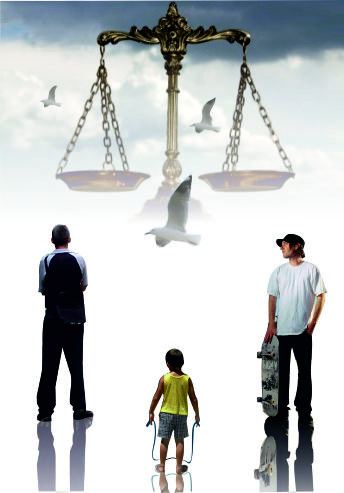
One of the problems that often confronts young people, although not exclusive to this segment of the population, is the social rejection to which men and women who have been sentenced for some crime are subjected.
It becomes evident in different ways, more commonly in the absence of job opportunities, a current problem for young people on a global scale. A requirement of the employment application is a certificate from the Central Registrar of Sentencing, which contains the criminal record of each individual, along with the police profile that Cuba keeps for every individual in the system, regardless of the resolution of a case. If it indicates that the applicant has been tried or sentenced for anything illicit, no matter how minor the crime, he is denied the job and forced to apply for “another job.” The economic crisis and the current social climate make this already critical problem worse.
I am of the opinion that, while the profiles used by authorities are necessary from a legal standpoint — as in criminal profiling, when even honesty forces one to acknowledge the technical and scientific backwardness from which we suffer in this area — “profiling” with respect to employment is an unacceptable practice, an affront and a lifelong label.
A letter sent to AJC by Maria Emilia provides an example. In it she asks for assistance to help her son re-enter society since, as she says in her own words, he has been subject to detentions and citations to explain his conduct in being involved with other delinquent youths, and I quote … “My son is 28 years old and went to prison when he was 17, not knowing other people I turn to young people who went through the long stay in prison with him, which I suppose are seen in the communal services where he worked when he got out of prison, there are no doctors working there or others of that type, if my son at only 17 was given such a severe sentence, it’s impossible that he would know other people without the Cuban state itself enabling him.”
A separate item requires the social recognition or lack of recognition young offenders coming out of prison receive when they arrive in the neighborhood, referring to the stigma they face, a product of the devaluation of the social aspects with which they are not welcomed and recognized with such defects or social attitudes.
These efforts to mitigate the adverse effects of isolation are laudable, but the remedy is always in our hands, mainly in the hands of young people themselves. Nobody will do for them what they do not want or can not do for themselves.
There are young people eager to move forward. Children and young people are the most precious treasure of our society. You have to give them a great deal of credit, whether they have been prosecuted, punished or not. The day the country eliminates this type of injustice, so bravely, creating, proposing and doing, the harmful consequences that this type of iniquity to this important sector of society will be eliminated
Boston College CASA and RST
September 16 2012

